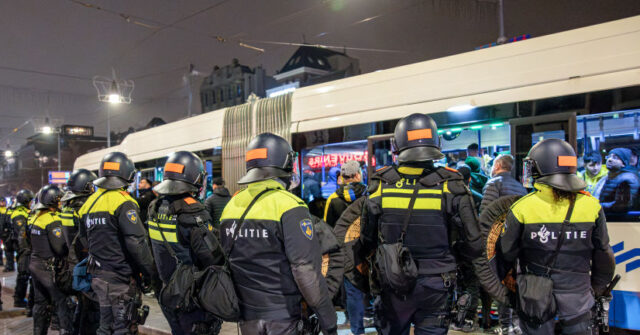In recent weeks, Israelis in Europe have been strongly advised to avoid displaying their Jewish identity at public events, particularly following violent incidents targeting Israeli football fans in Amsterdam. This warning follows a marked shift in the perception and treatment of Israeli sports teams abroad, especially since the October 7 terrorist attacks on Israel. The situation has become increasingly precarious, as Uefa has deemed it unsafe for Israeli teams to compete in their own country due to fears of violence. As a result, they often seek alternative venues for home games but face challenges in finding suitable locations for away matches, too.
Historically, European football has struggled with hooliganism, but current security concerns have evolved from anti-social behavior to the politically charged atmosphere surrounding the Israeli-Palestinian conflict. The attacks in Amsterdam, which were reportedly coordinated through social media and involved local taxi drivers transporting fans to hotels, led to comparisons with historic pogroms against Jews. This alarming trend highlights a rising anti-Jewish sentiment that allows genuine security concerns to escalate into violence against innocents.
Moreover, the situation is not solely about organized incidents of violence; it also reflects a broader unwillingness in several European cities to host Israeli football matches at all. Belgian authorities, for example, outright refused to allow Israeli teams to play, citing fears of riots and disturbances amidst ongoing tensions related to the Israel-Hamas conflict. This refusal, supported by political statements about the “disproportionate risk” involved, casts doubt on the safety and autonomy of these cities to maintain order, effectively designating them as unsafe spaces for Israeli citizens.
In stark contrast, Hungary has emerged as a rare sanctuary for Israeli sports, offering a welcome environment for both athletes and fans. Prime Minister Viktor Orbán’s administration maintains a close relationship with Israel and has promoted Hungary as a safe haven for Jews in Europe. This relationship is bolstered by Orbán’s personal affinity for football and the country’s upgraded sporting infrastructure, further positioning Hungary as a logical host for Israeli sporting events amidst a reassessment of security around the continent.
Despite the troubling backdrop, upcoming matches still hold promise for some level of international solidarity. France’s government has expressed its support for Israeli footballers, with prominent officials including President Emmanuel Macron planning to attend an upcoming match in Paris. This move is seen as a demonstration of friendship against the backdrop of widespread calls from the far-left in France for the game to be canceled due to political tensions. However, contrasting stances are evident with countries like Turkey, which, while not part of Europe, will also move their match against Israel out of Istanbul, choosing Hungary instead.
As the threat of violence remains palpable, the Israeli National Security Council has issued robust warnings to citizens planning to attend matches abroad, including specific alerts about potential attacks on Israelis linked to pro-Palestinian demonstrations. This heightened alertness underscores a growing concern that anti-Israel sentiments, when merged with instances of unrest, could lead to dangerous consequences. The recent violent incidents, including those targeting fans of other nations, suggest that the risks extend beyond just political protests, presenting a complex landscape of safety and identity for Israelis in the contemporary European setting.

